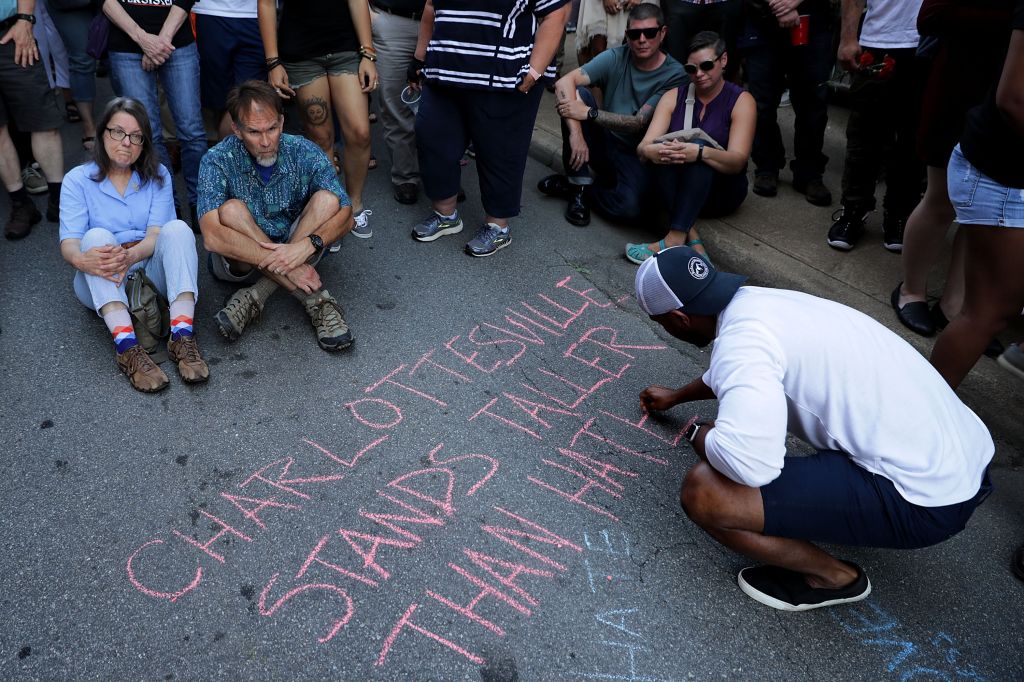Charlottesville Civil Trial Attempts to Hold Planners Of White Supremacist ‘Unite The Right Rally’ Accountable Over Four Years Later
Source: Chip Somodevilla / Getty
More than four years after the tragic violence in Charlottesville, Va., organizers of the Unite the Right rally may finally be held accountable. Jury selection began Monday in the civil suit. The case is the first major attempt to use the Enforcement Act of 1871 in a civil suit context.
Also known as the Ku Klux Klan Act, the civil rights legislation was signed into law by President Ulysses S. Grant in 1871. According to the Zinn Education Project, the legislation was the third enforcement act passed to protect the rights of Black people against white supremacist violence.
Today, a civil trial begins in Charlottesville, where a jury will decide whether organizing the 2017 Unite the Right rally amounted to a conspiracy to engage in racially motivated violence.
The plaintiffs’ lawyers say the suit is one way to correct a lack of accountability.
— Kyle Griffin (@kylegriffin1) October 25, 2021
As reported by ABC News, the current lawsuit was brought by nine people injured during the 2017 incident. The plaintiffs claim that by demanding followers show up to defend the south from non-white people and their allies, the defendants created a scenario that promoted violence directed at people opposing white supremacy.
While the defendants claim they were exercising their first amendment rights, the case will test the limits of free speech absolution arguments. Far-right actors organized a mass convening with the express purpose of direct confrontation.
Far-right leader Richard Spencer alleged in documents that the lawsuit ruined him financially. The incident facilitated the environment in which a white supremacist killed Heather Heyer with his car. It’s estimated at least 30 people were injured over the course of the event.
Heyer’s mother sued her daughter’s killer two years ago. She said she wasn’t after his money but just wanted to prevent him from profiting from his story. The event didn’t simply turn violent; plaintiffs believe violence and targeted fear was the purpose of the gathering. Experts see successful legal precedent for charging the rally’s planners.
“We have had a number of issues with effective returns in criminal trials for reasons ranging from ingrained problems in our legal system that have to do with long histories of white supremacy to all kinds of procedural problems that have derailed justice in one way or another,” University of Chicago historian Kathleen Belew said in an interview with NPR. “Civil trials are a really good tool in hitting the pocketbooks and the membership lists of white power groups.”
See Also:
Man Shot By Kyle Rittenhouse Is Suing Kenosha Police for Enabling Violent White Supremacist
[ione_media_gallery id=”4213965″ overlay=”true”]

